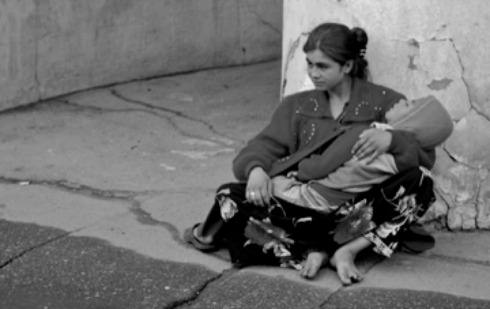 This week three apparently unrelated commemorative days follow one another: World Mental Health Day (10 Oct); World Homeless Day (10 Oct); International Day of the Girl Child (11 Oct). They are linked in telling us what is necessary if people are to find a home, are to enjoy mental health, and if women are to take their equal place in society.
This week three apparently unrelated commemorative days follow one another: World Mental Health Day (10 Oct); World Homeless Day (10 Oct); International Day of the Girl Child (11 Oct). They are linked in telling us what is necessary if people are to find a home, are to enjoy mental health, and if women are to take their equal place in society.
Mental health and shelter are natural companions. The important study of disadvantage, Dropping off the Edge, showed how in a relatively few postcodes and areas people who were disadvantaged in one respect were also likely to be disadvantaged in other respects. People from dysfunctional families were also more liable to be poor, to lack opportunities to study and work, to be mentally ill, to live with addiction and to come into contact with the justice system. They are also more likely to become homeless. So poor mental health and homelessness are half-sisters but their mother is deprivation that was not addressed.
Prejudice, which often leads unnoticed to discrimination, can also contribute to future homelessness and mental illness. People who are homeless and mentally ill are often looked down upon and feared. So they avoid seeking help. If they do seek help they often meet discouragement from agency staff. They may also have suffered from prejudice earlier in life that hindered their opportunities to be educated and to work, particularly if they belong to an immigrant community.
The Day of the Girl Child, too, reminds us that in many cultures women suffer from massive discrimination. Under the Chinese One Child policy, for examples, abortion was common to ensure that only a boy would come to term. In other cultures girls are discouraged from seeking education or work, and face great difficulties in making a contribution to society outside the family. In Western societies, too, women must still struggle against subtle forms of discrimination.
The root of prejudice, discrimination and poverty is the failure to treat and to welcome people because they are human beings. They have instead to establish their human value by being beautiful, rich, healthy, fortunate, male, or from the right religion and ethnic group. Precisely because it is so easy to devalue the precious humanity we all share, we need days to say that our common humanity makes us responsible to other people to ensure they are fed, sheltered, nurtured, educated and have the opportunity to flourish.
Photo: Katheirne Hitt; Flickr CreativeCommons License